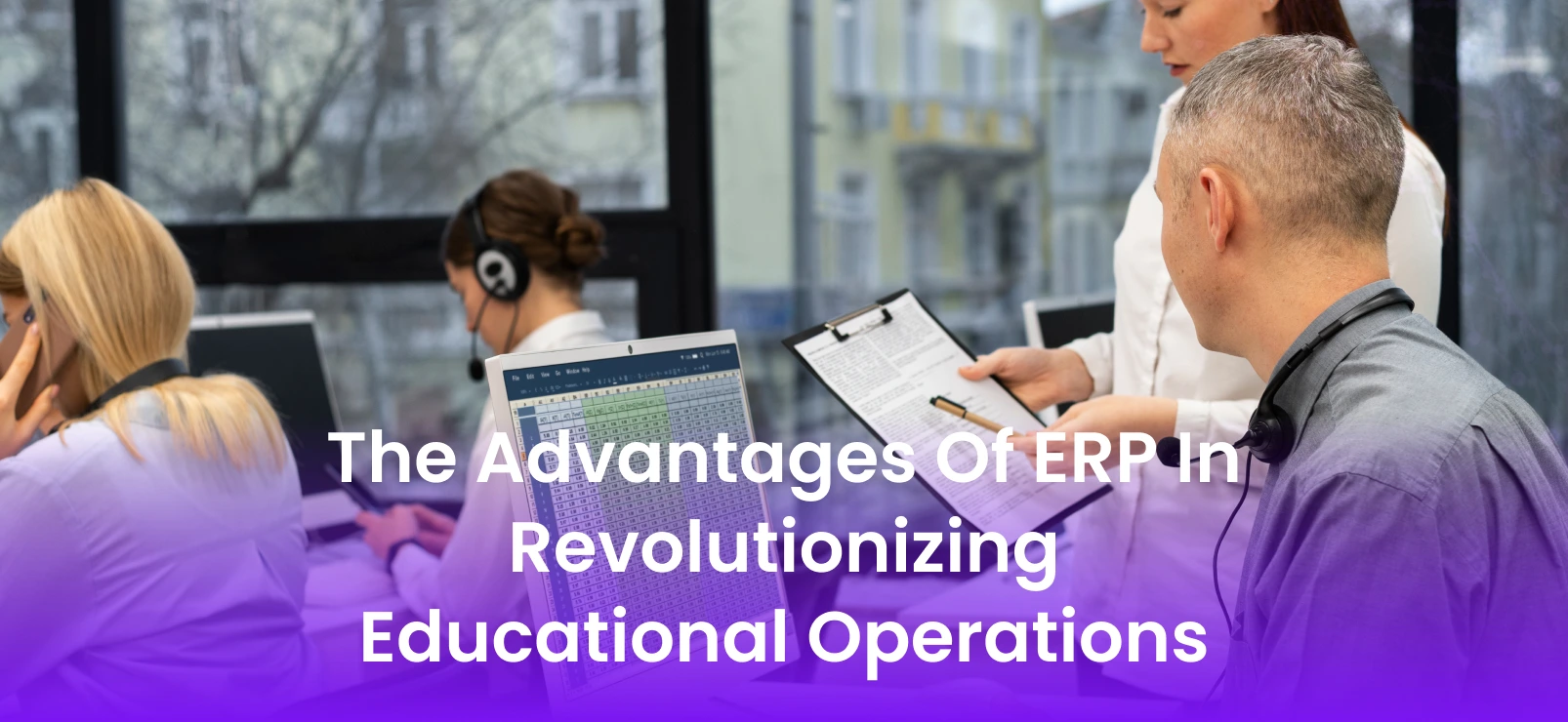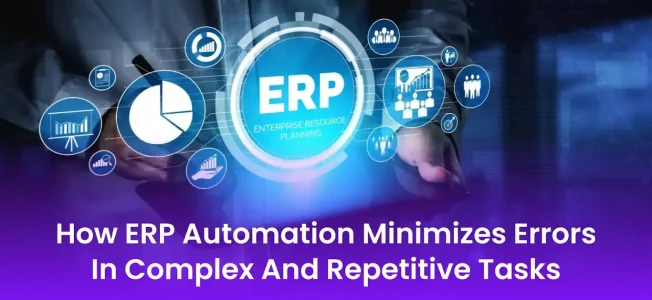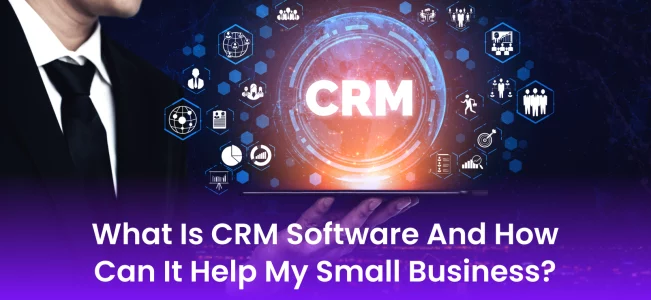The Advantages Of ERP In Revolutionizing Educational Operations
When it comes to managing student admissions, fees, resources, and departmental communication, the education sector faces numerous challenges. The requirement for a streamlined, efficient system to manage these processes grows as educational institutions develop. ERP (Enterprise Resource Planning) systems have transformed the way educational institutions function by helping them increase productivity, reduce expenses, and improve communication. Here are the major ways ERP systems help education industry.
Simplified Admission Process
Outdated admission processes can be extensive and complex, demanding extensive documentation and manual data entry. An ERP system streamlines this by centralizing all student details in one platform, enabling administrators to rapidly access and process applications. This lessens human error and accelerates the admission process, making it more effective.
Automated Fee Payments
An essential component of any educational institution’s operations is fee collection, and manually tracking payments can be laborious and prone to mistakes. ERP systems automate the fee collection process, classifying payments (tuition, hostel, lab fees, etc.) and tracking pending or paid fees. Automatic reminders are sent to parents, ensuring well-timed payments and decreasing administrative workload.
Cost-Effective Operations
Executing ERP in educational institutions considerably lessens the cost of manual labor and paperwork. Automating administrative tasks like admissions, grade management, and fee tracking, institutions save both time and resources. These savings can then be forwarded toward improving educational services, advancing infrastructure, or improving student support.
Centralized Data Management
Managing vast volumes of data is one of the most crucial challenges in educational institutions. ERP systems centralize all data in one unified platform, including student records, schedules, results, and financial details. This centralization eases data barriers and enhances communication across departments, ensuring that all key information is readily accessible to the essential stakeholders.
Improved Decision Making
With an ERP system, administrators can rapidly access all-inclusive data and reports on students, finances, and operations. This competency supports informed, data-driven decision-making. The system allows faster decisions, whether regarding resource allocation, scheduling, or strategic planning, thus enhancing overall institutional performance.
Real-Time Data Access
With real-time access to data throughout departments, ERP systems ensure that administrators, staff, and faculty members can stay informed regarding student progress, class schedules, and financial details. Any educational institution’s operations heavily rely on fee collection, and manually tracking payments can be challenging and prone to errors.
Quicker Management Process
ERP systems facilitate quick decision-making for educational institutions by streamlining data access. Administrators can manage student admissions, fee payments, course schedules, and more without any disruptions because of real-time updates and instant access to data. This increases the efficiency of operations and ensures that departments can act on crucial information without having to search for reports.
Maximized Teaching Time
Automating administrative tasks such as scheduling, grading, and attendance tracking allows teachers to spend more time instructing. This lessens the administrative burden and gives teachers more time to concentrate on improving the learning environment for students. Automating these tasks improves record-keeping accuracy, which benefits both teachers and students.
Data Security
Financial information and student records are among the sensitive data that educational institutions maintain. ERP systems provide strong security features to protect this information. By limiting access to critical information to authorized personnel, data encryption, multi-layer security protocols, and access control reduce the probability of data breaches.
Reduced Paperwork
ERP systems digitize administrative functions, eliminating the necessity of keeping records manually. This leads to a paperless environment where data can be easily shared, accessed, and updated. Excluding physical paperwork allow institutions to save money on materials and space while reducing the environmental effect of paper waste.
Enhanced Resource Management
Managing resources, such as classrooms, books, and staff, can be a complex task with no effective system in place. ERP systems facilitate real-time resource tracking, allowing organisations to keep an eye on staff schedules, classroom distribution, and inventory levels. This prevents academic and administrative resources from being used excessively or insufficiently, leading to optimal resource usage.
Effective Communication
ERP systems create portals for parents, staff, teachers, and students, which improve communication within educational institutions. While parents can keep track of their child’s progress, students can access class schedules, assignments, and grades. By connecting with students or parents, posting assignments, and monitoring student progress, teachers can improve collaboration and engagement within the school.
Why Choose CERPSuite for ERP in the Education Sector?
With real-time data access, automated fee payments, and quicker admissions, CERPSuite provides educational institutions with a customised ERP solution that streamlines operations. In addition to concentrating on data security, resource management, and better decision-making to reduce administrative costs and improve educational outcomes, its user-friendly interface and adjustable features ensure easy integration.
Conclusion
ERP systems in the education industry improve communication and decision-making while streamlining procedures such as admissions and fee payments. With centralized data and better resource management, ERP systems maximize productivity, reduce expenses, and improve the overall educational experience for administrators, teachers, and students. ERP is the right choice if you are looking to improve academic performance while offering a competitive edge.












